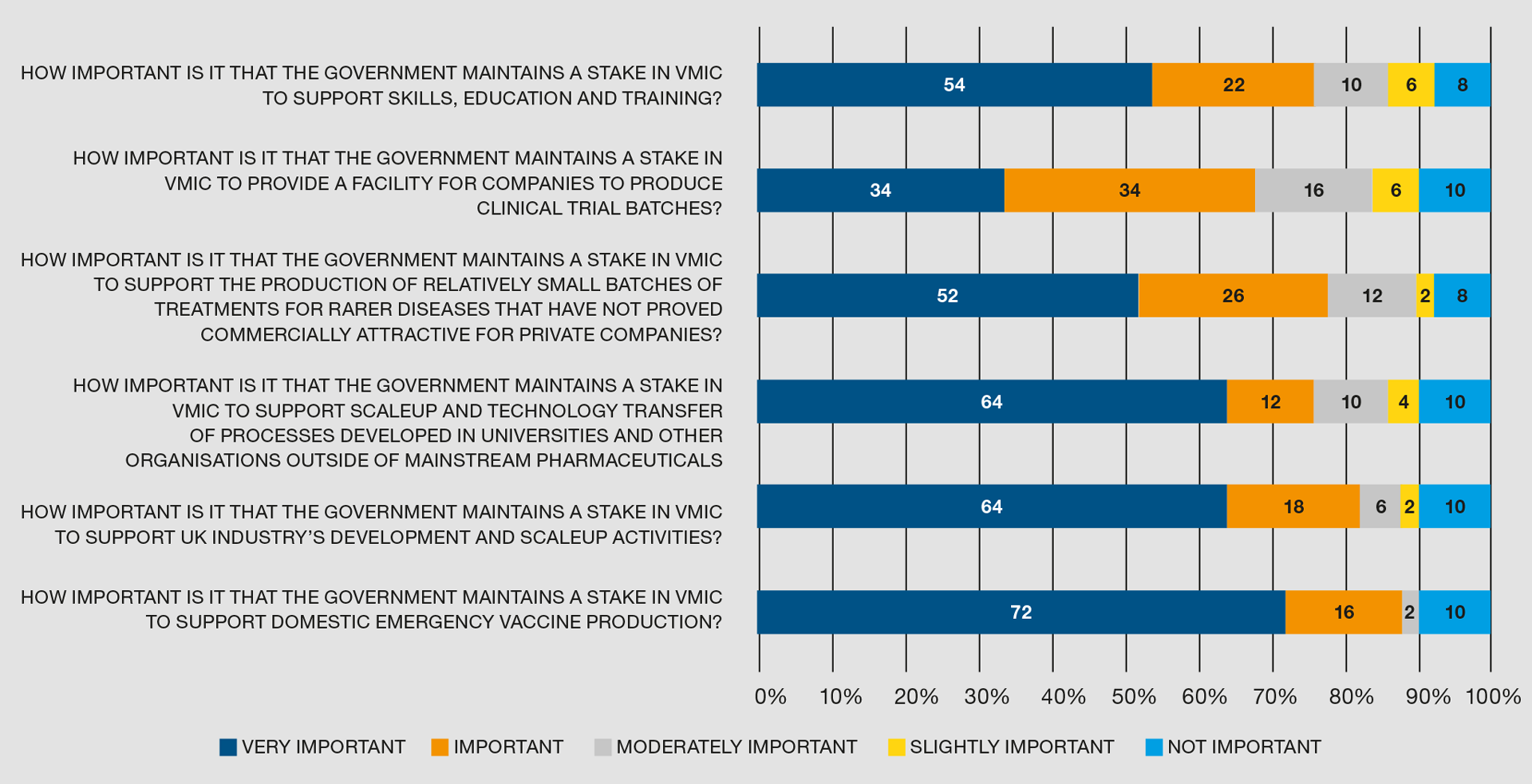Plans to sell off UK vaccine centre ‘short-sighted’ and ‘ludicrous’
Engineers warn reported sale of VMIC risks health security and industry innovation
ENGINEERS have hit out at the UK Government’s reported plans to sell off the country’s emergency vaccine manufacturing facility, cautioning that a sale to private business will damage skills and scaleup opportunities, and the UK’s ability to react to future health emergencies.
86% of engineers responding to a poll conducted by The Chemical Engineer have said the Government should retain a stake in the UK Vaccine Manufacturing Innovation Centre (VMIC), following a report in the Financial Times that the Government has put the centre up for sale. Engineers variously described the decision to sell during a pandemic as “curious”, “short-sighted”, and “ludicrous”.
The choice to invest taxpayers’ money in the centre came before the Covid-19 pandemic struck. In 2018, the Government pledged £66m (US$88m) to build the centre in Oxfordshire with operations set to begin in 2023. Its purpose was to provide vaccine manufacturing capacity in the event of a pandemic; offer a cost-effective site for developing and manufacturing new vaccines to support UK industry; and allow cost-effective small production runs for rarer diseases, such as Ebola and Lassa fever. Following the outbreak of the pandemic, the Government awarded VMIC a further £131m to expand production capacity 20-fold so it could produce 70m doses in 4-6 months; to become technology agnostic in terms of the vaccine production technologies it uses; and to fast-track construction with operations currently expected to begin in 2022.
A source briefed on the situation told the FT that concerns have eased about the need for VMIC to provide surge manufacturing capacity and the sale could help the government recoup some of its investment.
Responding to our poll, Al Edwards, an Associate Professor in Biomedical Technology, said: “It seems ludicrous after all the talk of the national security risk of not having UK vaccine manufacturing capacity, followed by a pandemic and more than 150,000 people dead in the UK, followed by a massive investment into a manufacturing facility, to then sell it off. It’s just impossible to understand.”
Another said: “As has been shown recently with the failure of our energy, water and rail systems, privatisation is not the answer to national critical healthcare.”
These comments come in response to a poll sent to members of IChemE’s Pharmaceutical, and Biochemical Engineering Special Interest Groups and the Covid-19 Response Team. Of the 50 members that responded, 72% said it was “very important” that the UK maintains a stake in VMIC to support domestic emergency vaccine production.

Strategic national risk
Alan Ramsay, a Principal Process Engineer, said: “Without such a facility, decisions on supporting emergency vaccine development and production will be taken at a primarily commercial level, rather than giving priority to public need. Since the facility cannot be guaranteed to be controlled by a UK-based entity, the priorities for the facility may be set to suit the needs and requirements of others, and the benefits derived from the facility will not be enjoyed by the UK.”
Vaccine supplies have been a point of contention throughout the pandemic as countries have struggled to secure enough doses. This remains a problem throughout the developing world, so much so that in December the World Health Organization (WHO) called for a ban on the use of booster doses for healthy adults in order to get vaccines to those who remain unvaccinated. In February 2021, tensions rose between Europe and the UK following the bloc’s relatively slow vaccine rollout. Concerns grew over so-called “vaccine nationalism” as the EU threatened to halt delivery of vaccines that the UK had purchased from plants in Europe.
Bill Thompson, a biopharmaceuticals consultant, said: “Vaccines manufacture, particularly for pandemics, is a national strategic requirement and its control by a UK-based organisation is necessary to secure supply.”
Another respondent added: “Given the difficulty that the Government had procuring something as simple as PPE at the start of the pandemic, we need the facility to develop and manufacture vaccines for the nation without relying on commercial businesses, and without the risk that they can be purchased by companies based outside the UK.”

This article is adapted from an earlier online version.
Recent Editions
Catch up on the latest news, views and jobs from The Chemical Engineer. Below are the four latest issues. View a wider selection of the archive from within the Magazine section of this site.




